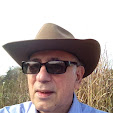
Celebrating at the Hindenberg Gate, Berlin, November 9, 2009
Notice the Dominoes poised to fall
Enough hype about the Berlin Wall, 20 years after its fall.
Clearly, there were cracks in the wall long, long before
In 1962, I visited Berlin at the height of the Cold War. The wall was erected a year earlier, tensions were running high and each side was flaunting its parade of soldiers, its long and short range missiles, its hidden missile pads/silos. ( Dr. Strangelove or how I learned to stop worrying and love the bomb would soon be the craze.)
With my American Passport in hand, I was able to cross over to the Communist side of Berlin or East Berlin.
I was struck by the run down neighborhoods and decrepit homes that showed the devastation of the City at the end of World War II. (this was in contrast to the West Berlin side where building cranes were re-erecting buildings all over and the Kurferstandamm or Ku-damm for short, the city's central hub was alive with tourists, cafes and boutiques day and night.)
I boarded the S-Bahn and got off at the Pergamon Museum where ancient Greek freizes, colums and human sculptures had been transported and preserved by the Soviets during World War II. (click here for Pergamon Museum flicker slide show.)
I had studied this exhibit 2 years earlier in my core curriculum art humanities course and what an experience it was to be able to witness these awesome freizes 2500 years old--miraculously saved from Allied bombings and now resurrected like West Berlin.
As I was touring the museum, I was approached by a museum guard who asked me in German:
"Haben Sie Amerikanische Zigaretten, bitte?!" (do you have any American cigaretttes, please?) while offering me some deutsche marks. I begged off and gave him a couple of Gauloises which he gladly accepted. The experience brought home to me the poverty, the isolation that separated W. Berlin from E. Berlin (By contrast, along the Ku-dam, the tobacconists carried all brands of cigarettes, international newspapers, etc.)
In 1965, my dad lead the first group of American Doctors 'to tour' and visit Russian health facilites behind the iron curtain at the invitation of the Soviet Government. He told me that he was approached by dissidents outside the Central Synagogue in Moscow who tried to pass him letters to take back to relatives. They communicated in Yiddish even while KGB agents were milling about.
My dad realized the 'consequences' --certain apprehension and possible jail if he cooperated- as he refused to accept anything from these ordinary citizens who literally had been cut off from the outside world.
These were grim times indeed!
Check out an 'Ugly American' experience that occurred about 40 years later in East Jerusalem just after 9/11/01.


No comments:
Post a Comment